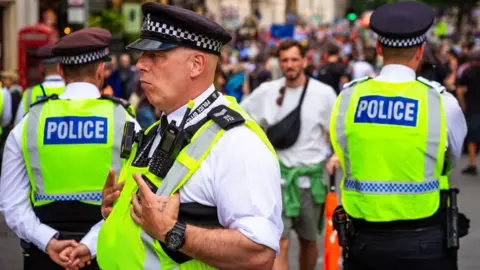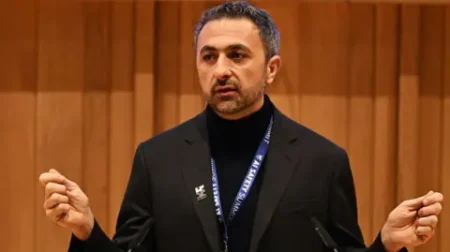In recent developments, the Equality and Human Rights Commission (EHRC) in the United Kingdom has raised significant concerns regarding the Metropolitan Police’s application of live facial recognition technology (LFRT). The regulator argues that the current deployment of this surveillance tool breaches fundamental human rights laws, signaling a contentious debate over privacy and safety.
**Understanding the Technology and Its Use**
Live facial recognition technology operates by analyzing video feeds from CCTV cameras to identify individuals on a police watchlist. According to the Metropolitan Police, this implementation has aided in over 1,000 arrests from January 2024 onwards. The police assert that their use of LFRT is lawful and within policy guidelines. However, the EHRC highlights that any utilization of such technology should be grounded in laws emphasizing necessity, proportionality, and protection of individual rights. Their assertion is clear: the existing policy of the Metropolitan Police does not meet these essential standards.
As part of their engagement in this matter, the EHRC has received permission to intervene in an upcoming judicial review related to the police force’s application of LFRT. This judicial review is critical, as it delves into the balance between law enforcement practices and civil liberties.
**Expert Opinions and Regulatory Position**
John Kirkpatrick, the chief executive of the EHRC, acknowledged the potential advantages of this technology in enhancing police efforts against serious crimes while ensuring public safety. Nonetheless, he emphasized the necessity for stringent regulations governing the use of LFRT. His comments highlight a crucial dichotomy: while technology can serve to enhance security measures, it must not come at the cost of invading privacy or infringing on individual rights.
The Metropolitan Police engaged in dialogue with the media, affirming their commitment to a lawful implementation of LFRT and their readiness to fully cooperate during the judicial review process scheduled for January 2026.
**Concerns About Human Rights**
The EHRC has expressed its concern that the Metropolitan Police’s existing policies concerning the use of facial recognition infringe on several key rights guaranteed by the European Convention on Human Rights. These rights include the right to privacy, the right to freedom of expression, and the right to assembly, all foundational elements that preserve individual dignity and liberties within society.
In a recent statement, the Metropolitan Police disclosed that LFRT has enabled the arrest of numerous suspected offenders, including individuals accused of severe crimes such as pedophilia and violent robbery. Specifically, 773 of these individuals have faced charges or received cautions. Despite the highlighted successes, the proposal to employ LFRT at significant events, such as the Notting Hill Carnival, has generated divisive opinions among civil rights advocates and the public.
**Public Reaction and Implications for the Future**
Civil liberties organizations and privacy rights groups vehemently oppose the deployment of LFRT, arguing that it represents a significant invasion of personal privacy and carries a heightened risk of misidentification. These concerns contribute to a broader conversation regarding the ethical implications of technology in policing and the delicate balance authorities must maintain to protect both public safety and individual freedoms.
Despite the resistance, the Metropolitan Police defend their stance on the use of LFRT by arguing that it facilitates crime reduction amid fiscal constraints affecting public resources. Currently, the absence of specific domestic legislation to regulate LFRT’s use by law enforcement further complicates this debate.
As this situation unfolds, the outcomes from the judicial review and public discourse may have lasting impacts on law enforcement practices, shaping future policy regarding technology deployment in public safety measures. The challenge will be to navigate the fine line between ensuring security and safeguarding personal liberties, a complex task that will demand extensive public deliberation and legal scrutiny.











